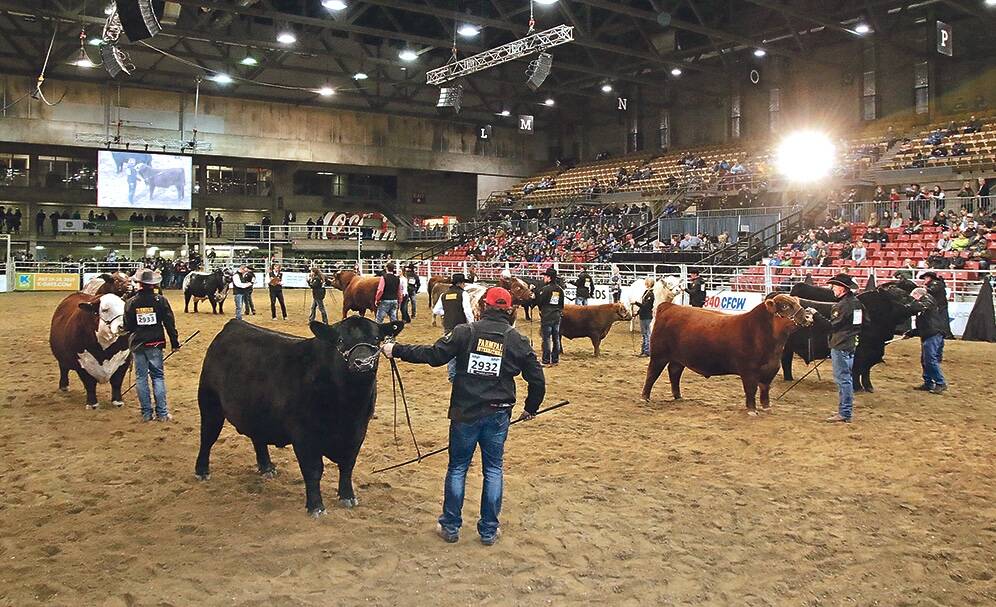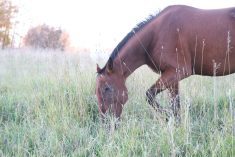The bond between human and horse can be a great comfort, and The Lethbridge Therapeutic Riding Association has found new ways to strengthen that bond during the pandemic.
“COVID-19 forced us to be creative,” said Jason Shriner, executive director of the LTRA, a small 30-year-old non-profit.
“There were no visitors to the farm, which was a hardship for our clients, and for us,” Shriner said.
During regular times, the centre provides riding programs for children with disabilities, particularly those with cerebral palsy and autism spectrum disorders. The LTRA also collaborates with Alberta Health Services to offer equine therapy to people dealing with mental health issues, including anxiety, trauma and addiction.
Read Also

Farmfair International boosts accessibility with weekend schedule shift
Farmfair International is changing its scheduling format to include the weekend and hopefully attract even more attendees.
Participants attend the programs with a nurse or a support worker, and pet or groom a horse.
During the first-wave lockdown, all the association’s regular activities ceased on its farm just east of Lethbridge.
The group wondered what to do, until a board member, who works as a recreational therapist with Alberta Health Services thought of the “Hearts in the window campaign,” when people put hearts on their windows to honour health-care workers.
“She came up with a beautiful idea called ‘Horses in the window.’ If they couldn’t come to us, is there a way we could go to them?” Shriner said.
The group reached out to seniors’ homes, palliative care wards, a detox centre and prisons.
“We would load up a couple of horses in our trailer and go to the property and walk the horses around outside,” he said.
The seniors would usually get up, pull up the blinds, and look out the window, he said.
“Everybody has a horse story in southern Alberta, or in Alberta, period. Either they grew up on a farm, they had a horse, they had a friend who had a horse. It seems to be absolutely ubiquitous. Horses and Albertans. They just sort of go together. Everybody has that touching story.”
As COVID-19 restrictions eased, the group kept the program growing.
“The community rallied around it and provided us with some funding. We’re a not-for-profit and money is always tight,” Shriner said.
The LTRA kept taking horses out on visits, and people started coming out of their rooms to see them.
“The seniors and patients in palliative care would come out and physically interact with the horses.”
Sensing human emotions
Shriner said a therapeutic horse is a partner in care with a job to do, not unlike a police dog. Horses are great therapy animals because they are naturally empathetic and thrive from relationships. Since horses are prey animals, their sensitivities are on high alert at all times, and they are quick to sense human emotions.
“The human/horse relationship is a long-standing relationship and goes both ways. They can ease some of that anxiety. We see it happen every day and it’s quite beautiful.”
“Horses in the window” is still happening a couple of times a week and the demand is growing. The group doesn’t have the resources to keep up with demand, Shriner said.
“We could be busy all day long, every day of the week with this. Our horses and volunteers are in love with the program. The nurses are in love with the program. There’s a big desire to be involved. We see it as a tremendous opportunity to serve Albertans in need.”
The LTRA has expanded its programs further and has been in contact with other parts of Alberta Health Services.
“We brought our horses to Galt Gardens in Lethbridge, which is ground zero for addiction and homelessness in southern Alberta. Alberta Health Services got a tiny bit of funding to help cover the costs of this. The impact was unbelievable. I was moved to tears,” Shriner said.
He said people put their arms around the horses and wept. Many of the participants were visibly moved by their interactions with the horses.
“There were a number of care agencies that were present for that, who are reaching out now to discover what collaboration might look like… for those who are in their care for post-traumatic stress disorder, anxiety, trauma and addiction. I think there’s real opportunity to help bring some joy and light to folks who are in a real dark place. We know that COVID-19 has done absolutely terrible thing for the mental health of Albertans.”
“We can be part of a multi-pronged solution. We’re going to have to be as creative as possible as a community now to get back to good and to get back to normal health and happiness, so we’re going to work on what we can to do our part,” Shriner said.
The LTRA has attracted the attention of the University of Lethbridge, which will be conducting analysis and research on the benefits of equine therapy in the next year.
The LTRA currently has 11 therapy horses and has capacity for 18.
“The majority of the herd is aged. We’ve lost a few in the last couple of months. We’re looking to onboard new horses. But not every horse can be a therapy horse,” Shriner said.
Therapy horses need to be comfortable being handled by a lot of people. They need to have good dispositions, be calm and patient and able to stay still. A good therapy horse has a good attention span, and should not be easily distracted by feed, sounds or the unexpected.
“We’ve developed a rigorous protocol for keeping and graduating horses into the program. We’re actively looking to grow that herd so we can meet those needs,” Shriner said.
The group has received a grant to be able to expand its facilities.















